La Salle University
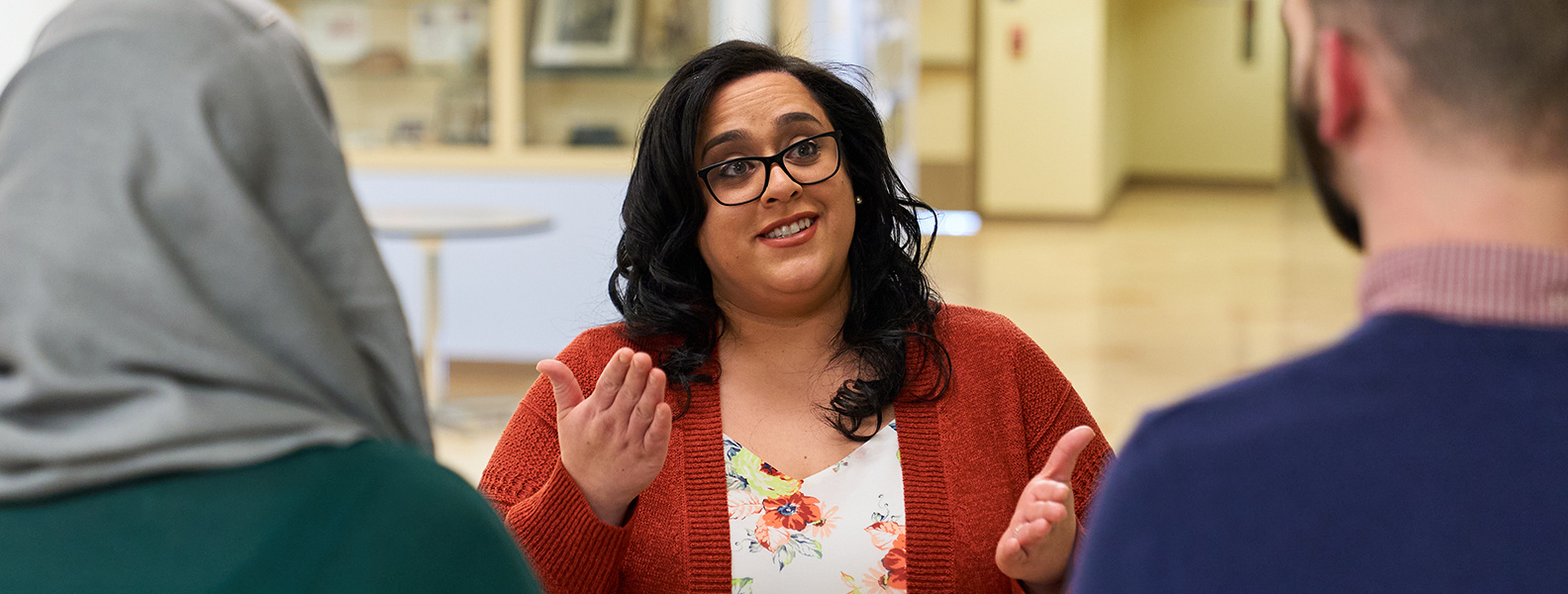
What You’ll learn
Our Social Work Program is a rigorous curriculum that builds on a liberal arts foundation. Courses cover the knowledge, skills, and values needed for a successful professional social work practice. Students integrate theory and practice during a 600-hour field practicum spread across three semesters. This gives La Salle’s graduates a competitive edge over others in the job market.
We do our best to meet each student where they are academically, professionally, and personally, so that we may nurture them for future success in their personal and professional lives. We believe our job as a department is to cultivate an environment where our students, and the people they influence, excel in life.
Why Study Social Work at La Salle?
Social workers help others reach their full potential.
As a social work major, you’ll be trained to become a competent, entry-level, generalist social worker for practice with individuals, families, groups, organizations, and communities. Our curriculum integrates the Lasallian values of respect for the individual and a commitment to social and economic justice with the theory, skills, and values of the social work profession, and offers students the opportunity to put theory into action. We set the bar high for our program so our students become the best professionals and people they can be. With a BSW from La Salle or other CSWE-accredited school, graduates can pursue a one-year MSW or you can earn both degrees in five years at La Salle.
Program Formats
The Social Work Program is offered in full-time, part-time, and accelerated formats. On our campus in Philadelphia, we offer the curriculum in a full-time day and part-time evening format. Additionally, we offer an Accelerated Bachelor of Social Work (BSW) program that can be completed in as little as 15 months, perfect for adult learners.
Highlighted Courses
SWK 340 – Preparation for Professional Practice
This course prepares students for the professional practicum in social work. The course will familiarize students with the roles of the student intern and will guide students in developing skills for the social work relationship, as well as an understanding of profession practice. In the course, students will identify diverse and vulnerable populations that pose the most challenge, so that they can gain knowledge, comfort, and experience interacting with various social groups. The course will also introduce interviewing and empathic listening skills while providing opportunities for students to practice these skills.
SWK 330 – Working with Children and Families
This elective course will examine the ethical perspectives of social justice and the ethical dilemmas of working with vulnerable children and families. We will critically examine current policies and practices relating to children and families’ circumstances and be able to apply appropriate social work perspectives that encourage sound practice, while reflecting upon the influence of historical events and persons. The course will enable students to bring skills and knowledge to bear in assessing and intervening in situations involving children and families.
SWK 391 – Social Work & Social Policy
This course will provide an examination of the historical roots of the United States’ response to human needs through social policy. The course will examine the effectiveness of various governmental policies – welfare, health, labor, education – to improve the well-being of residents of the U.S. The experience of oppression and discrimination of vulnerable groups will be stressed along with the distribution of power, status, and resources. A systematic framework for policy analysis will be presented and applied to contemporary social welfare policies, stressing critical thinking in how these policies can be improved to better serve individuals, especially those who have historically experienced oppression and discrimination. Cause advocacy will be presented for advancing social, environmental and economic justice, and human rights. Ethical issues and the underlying values associated with the allocation of resources will be highlighted.
Meet the Faculty
Students benefit from faculty who are social work practitioners as well as teacher-scholars.
Career Opportunities
- The need for social workers is expected to grow by 19% through 2026 (U.S. Bureau of Labor Statistics)
- Social workers have one of the highest rates of job satisfaction in the nation
- More than 95% of La Salle graduates secure a job within six months of completion or continue on to graduate school
- Social workers provide more than 60% of mental health services in the U.S. today. Roles include:
- Medical social worker
- Adoption specialist
- Case manager
- Diversity trainer
- Career counselor
- School social worker
- Community Organizer
- Policy advocate
- Housing specialist
- Perinatal worker
- Grief counselor
- Foster care provider
- Outreach worker
I wanted to change my life. La Salle University has been a big part of it. I didn’t expect all of these beautiful things. For myself, to improve my life, I had to be here.”
Faculty Profile
Janine Mariscotti, MSW, LCSW, Assistant Professor
“In social work, each individual person we meet is an expert on their own lives… It’s our job to build in what supports we can and then trust that they will do the rest.”
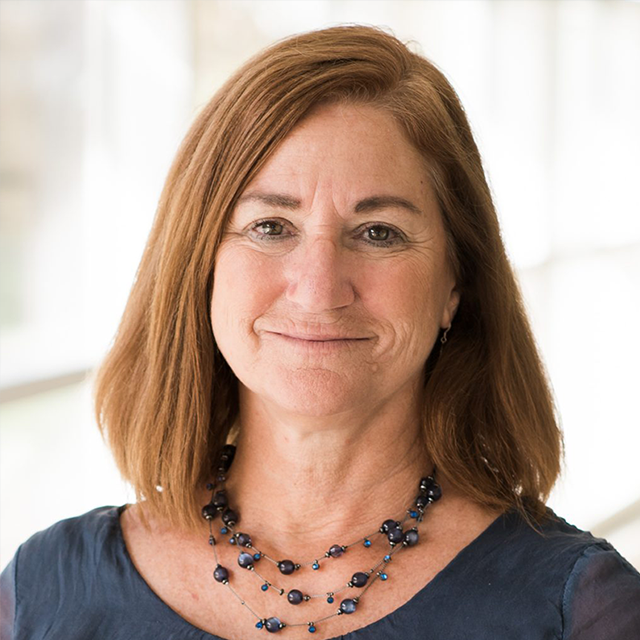
Accreditation
La Salle’s MSW program has achieved Candidacy for Accreditation from the Council on Social Work Education (CSWE).
Assessment Outcomes
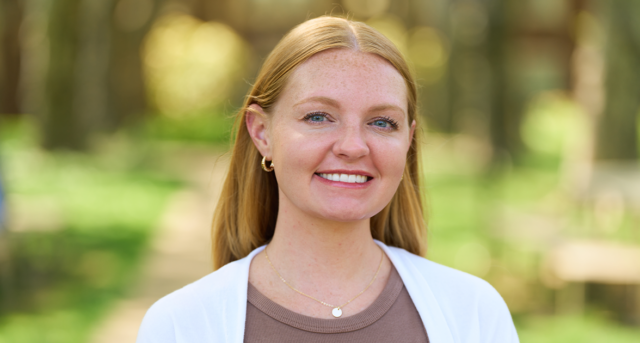
Brittany Kuhn, ’23, M.A. ’24, who lost her husband tragically, aspires to use her experience with loss as a means of guiding others through their difficult times. “If not me, […]
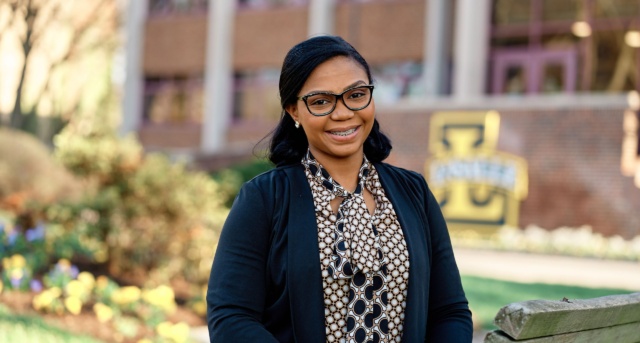
Albania Luciano Wilmo, ’21, is no stranger to overcoming obstacles. Albania Luciano Wilmo, ’21, is used to beating the odds. Overcoming obstacles has become commonplace for her. A language barrier. […]
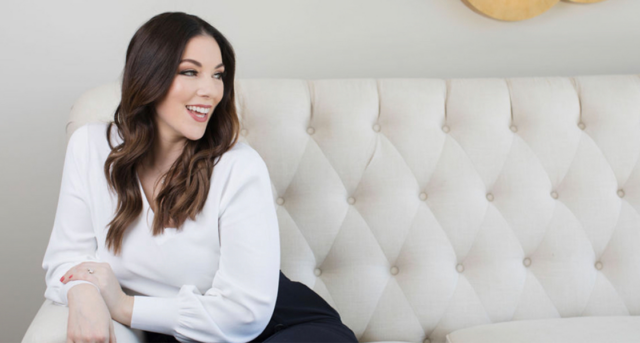
Julia Hartman, ’10, is helping others overcome barriers as both a licensed social worker and life coach. Julia Hartman, ’10, LMSW, knows the value of encouragement to someone who is […]